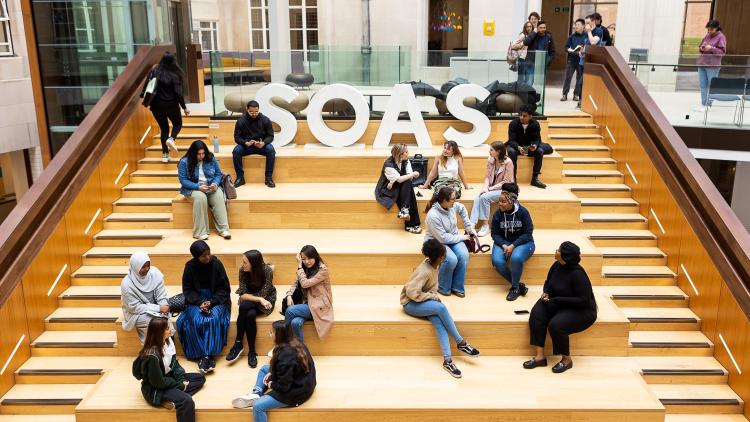SOAS G20 experts release report recommending framework for governing a 1.5ºC industrial and financial policy


G20 Group of Experts publishes new report: "A Green and Just Planet: A Framework for Governing Industrial and Financial Policy for a 1.5ºC World".
The Group of Experts to the G20 Taskforce on Global Mobilization Against Climate Change (TF-CLIMA) released its final report at the Annual Meetings of the International Monetary Fund and the World Bank.
The Group of Experts was appointed by the Brazilian G20 Presidency to provide an independent assessment and insights on the topics selected for discussion under the G20’s TF-CLIMA. The Group of Experts comprises 12 leading experts in sustainable development, climate change, economics, and finance, including two SOAS economics professors, Professor Daniela Gabor and Professor Ulrich Volz.
The group was tasked to prepare action-oriented proposals to promote alignment between global macroeconomic and financial frameworks and the implementation of the commitments made under the United Nations Framework Convention on Climate Change Paris Agreement of 2015 to keep the world within the parameters of the 1.5°C global warming target.
The report, entitled A Green and Just Planet: A Framework for Governing Industrial and Financial Policy for a 1.5ºC World, calls for all G20 countries to commit to new development pathways that reconcile economic growth with urgent climate action, and for equitable global governance structures that enable all countries to benefit from green growth.
The report sets out a transformative framework for advancing green industrial strategies and green financial policies to meet the urgent challenge of limiting global warming to 1.5ºC above pre-industrial levels.
The climate crisis is growing more dangerous and volatile. Current actions fall short of the economy-wide transformation needed to meet this goal. Failure to act will have severe and irreversible consequences for people, economies, and the planet.
The Group of Experts proposes detailed recommendations in three critical areas:
- Adopt green industrial strategies oriented around Nationally Determined Contributions backed by cross-ministerial and cross-sectoral collaboration and investment.
- Reshape financial policies and institutions to unlock access to affordable green finance and redirect investments from dirty to low-carbon, sustainable futures.
- Ensure equitable global governance of both green industrial strategy and green finance to ensure that all countries can benefit from green growth.
The report identifies, discusses and debunks five specific myths delaying climate action. Understanding and addressing the underlying reasons for the pervasiveness of these five myths is critical to the implementation of the report’s recommendations.
| Common myths blocking urgent action | Counter argument |
|---|---|
| Myth 1: “Market signals can drive decarbonization without direct government intervention.” | Markets alone cannot coordinate the rapid and large-scale economic transformation that is needed. |
| Myth 2: “Climate action will slow economic growth.” | Climate action and economic growth are not mutually exclusive. |
| Myth 3: “Industrial strategy does more harm than good due to government failure and capture.” | A greater risk of government failure arises from underfunded states that lack adequate capacity to implement industrial strategies that direct growth and shape markets, and that are therefore more prone to state capture. |
| Myth 4: “Governments don’t have the resources to address climate needs.” | The problem is not a lack of funding but a lack of willingness to direct it towards climate action. |
| Myth 5: “Blended finance – using public funds to ‘de-risk’ private investments – is always cheaper than public investment.” | Blended finance can lead to higher long-term costs compared to public financing, particularly for low- and middle-income countries. |
Header image credit: Agustin Diaz Gargiulo via Unsplash.



